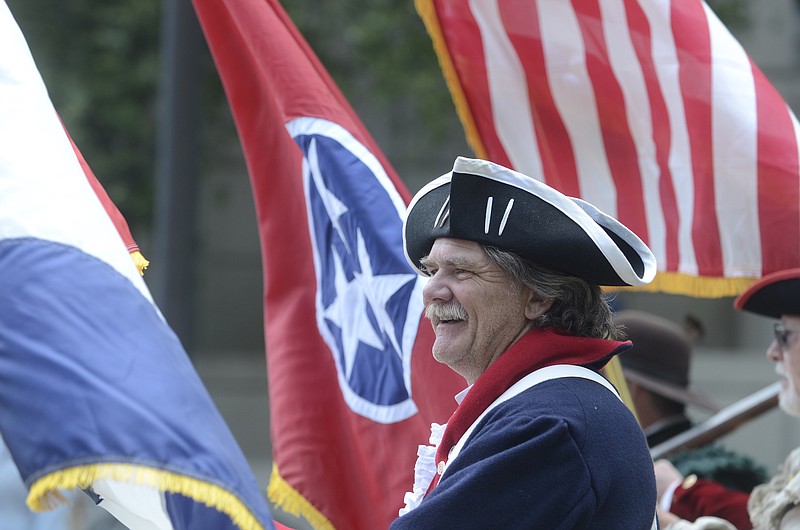We were reminded recently that the musical "1776" opened on Broadway 50 years ago this spring.
For those whose tastes do not run to musical theater, "1776" dealt with the tense negotiations leading the American colonies to declare on July 4, 1776, their independence from Great Britain. As it turned out, the occasion also was something to sing about. But we digress.
The musical itself went on to run for 1,217 performances on Broadway and was nominated for five Tony Awards. It won three Tonys, including the Tony Award for Best Musical.
It was made into a film in 1972, which one might occasionally see on television around July 4, and it was revived on Broadway in 1997. Infrequently, one might even have the opportunity to see a community theater version of the production.
The point here, though, is not the musical itself but what in such polarized times it can say to us.
Many say today the nation has never been on such opposite political sides, but "1776" depicts Massachusetts delegate John Adams - who would go on to become the second president of the United States - attempting to persuade representatives of all 13 colonies to vote for independence.
The other representatives don't want to hear his entreaties, it's hot in Philadelphia, and separation from the British mother ship was a bridge too far for some colonies.
Outside their meeting room, fellow delegate Benjamin Franklin encourages Adams - portrayed to effect but not historically accurately as a curmudgeon - to allow still another delegate, Richard Henry Lee of Virginia, to introduce a pro-independence resolution.
Imagine today a Washington politician who, wanting a critical bill to pass, hands it to a more popular political rival to give the bill a better opportunity to pass.
Ultimately, the delegates decide they need a declaration defining the reasons for independence. Adams, a smart guy, could do it, but he persuades Thomas Jefferson, who he admits is a better writer, to take on the task.
In this scenario, once again a politician refuses a chance to grab the headlines. What politician misses a chance to do that today?
As the musical continues to unfold, Adams either personally or through fellow independence-minded delegates attempts to convince the remaining others to back a resolution, which, thanks to an amendment, must be passed unanimously.
Eventually, Jefferson's declaration is read to the delegates, who congratulate him. Franklin then compares the creation of the country to the hatching of an egg, which is what has long been depicted on any "1776" play promotional material. The egg conversation leads to a debate about the best bird to represent the new country, Franklin infamously arguing for a turkey, Jefferson a dove and Adams an eagle, which wins out.
Days later, the declaration is put up for alteration, and delegates debate, and give and take, in order to reach a final version.
How much better our country might have been if it had similarly compromised on the 2010 Affordable Care Act or the 2017 tax cut or a number of other recent matters.
On July 2 in the musical, the actual day the vote for independence was taken, the delegates are still debating the wording in the declaration. Adams, himself, must make a large concession about the inclusion of a clause condemning slave trade. He knows slavery is evil, and a civil war will be fought about it 85 years in the future, but, Franklin reminds him, independence is the primary issue. The clause is removed.
What politician today, in order to get to a larger good, is willing to sacrifice part of the legislation?
In the musical, the removal of the clause brings across all the remaining colonies for independence, save Pennsylvania's vote. Its delegation is polled, with one for independence, one opposed and one - who usually votes with the naysayer - undecided. Adams and the naysayer vie for the man's vote, but Adams eventually wins out, with the delegate declaring he didn't want to be remembered as "the man who prevented American independence."
It is suggested no man be allowed to sit in the new Congress unless he is able to sign the declaration. The Pennsylvania naysayer says he can't in good conscience sign it and hopes for a reconciliation with England. But he decides to join the army and fight for the new nation. Adams, who has done the heavy lifting, leads the new body in a salute to the man.
The delegates, on July 4, as the Liberty Bell rings, sign the new document. They freeze in position. Lights out, curtain falls, end of musical.
Without such a spirit of cooperation, no new nation is formed. Is it too much to ask that our elected congressional leaders find that spirit today? We hope not.
